Somalia
Somalia's President Hassan Sheikh Mohamoud on Tuesday pledged "all-out war" to eliminate the radical Islamist Shebab, in his first statement to the nation since the bloody attack on a Mogadishu hotel that left at least 21 people dead and 117 injured.
"I know that the Somali people are tired of condolences and endless mourning, I know that you lose respectable people in every attack carried out by the terrorists," President Mohamoud said.
"I therefore urge you to prepare for an all-out war against these ruthless people who are hostile to our peace," he said in a statement issued by the presidency.
Last weekend's attack was the deadliest in the capital since President Hassan Sheikh Mohamoud was elected in mid-May and the government took office in early August.
The head of state convened a meeting of the national security committee on Tuesday, attended by the prime minister, the interior minister and the foreign minister, as well as the heads of the country's security services.
"We are determined to weaken the terrorists who are destroying our people until all the areas they control are liberated, this is a priority for our government. The preparation and implementation of this plan is underway," he stressed, without giving further details.
The radical Islamists Shebab, a group linked to Al Qaeda that has been fighting the Somali government for 15 years, launched a major attack on the Hayat Hotel in Mogadishu on Friday evening.
They stormed the hotel, a popular meeting place for government officials on the Muslim day of rest, detonating bombs and firing guns.
The attack ended on Saturday night after security forces intervened.
The Shebab were driven out of the main cities of the Horn of Africa country, including Mogadishu in 2011, but they remain entrenched in large rural areas and remain a major threat to the authorities.





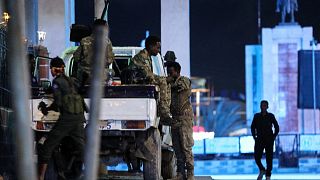
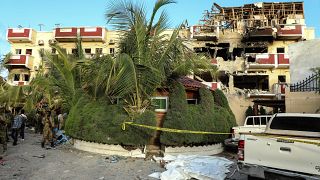
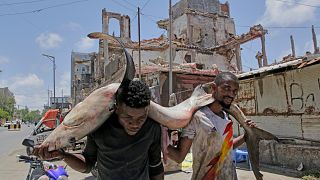
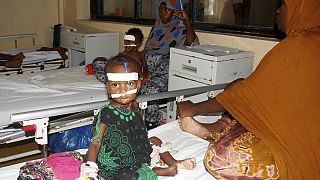
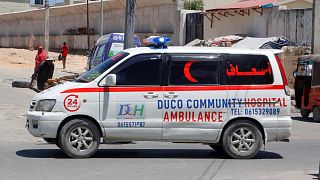

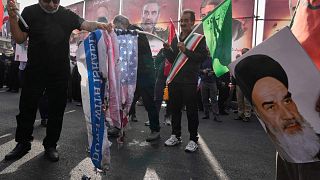

01:15
Kenya court sentences two to jail terms for aiding 2019 hotel attackk
Go to video
Sheep markets struggle in Niger ahead of Eid al-Adha amid insecurity and economic strain
01:03
Kenyan court finds two men guilty of facilitating 2019 hotel terrorist attack
Go to video
France: Family of mosque murder victim want case treated as terrorism
Go to video
UN Pushes for Inclusive Somali dialogue
Go to video
Somali president focuses on reforms, not re-election for now